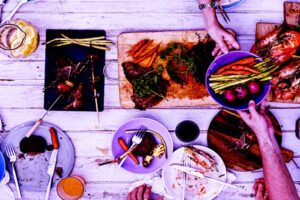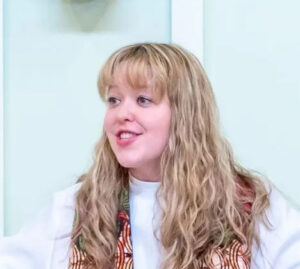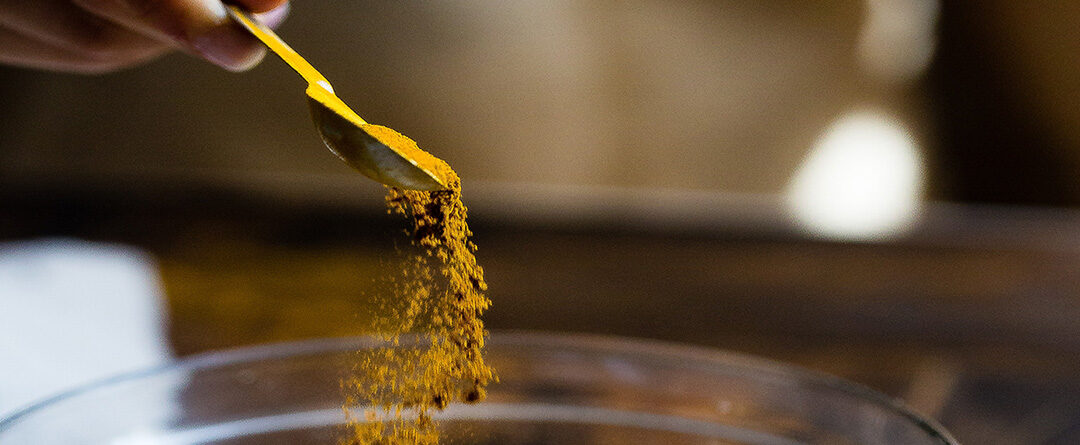by Melissa Woeppel
I live in Lindsborg, Kan., a small city of just under 4,000 people. The city is affectionately known to many as “Little Sweden, USA.” In the late 1800s, Lindsborg was settled by immigrants from Sweden, a history and heritage that continues today.
Each year, the city hosts a Midsummer’s Festival in June, around the same time as the Swedish Midsommar, a celebration of the summer solstice, the longest day of the year. Every other year, the biennial festival Svensk Hyllningsfest takes place in October. These celebrations include Swedish folk dancing, arts and crafts, musical entertainment, and food. Traditional Swedish offerings include Swedish pancakes (pannkakor) with lingonberry sauce, Swedish meatballs (köttbullar), pickled herring (sill), and kringler.
For me, the food is one of the best parts of it all. In addition to eating, I find great delight in the food demonstrations and the recipe sharing. My family has no known Swedish heritage, but I now bring kringler, a Swedish pastry made with almonds, to family gatherings because I learned how to make it and savor sharing it with my loved ones.
In the United States, November is a time to reconsider what histories get told and whose heritage receives honor and recognition. Though Lindsborg has this rich Swedish legacy, myriad and diverse people call the city home. Bethany College students from across the country and the world stake their claim here for nine months of the year. Over 46% are students of color, often journeying from urban and suburban metro areas to study in rural, small-town Kansas. Additionally, many permanent residents identify as Asian, Hispanic, and Latine*. Some of those families share their culinary gifts from their cultures.
These diverse cultures are among us, and yet, their stories and traditions are often overlooked in our communal celebrations. We do so to our collective detriment. Celebrating only a single narrative threatens to stall the development of our shared life. Often, we are tied to one story and one perspective, unable to see that which stunts our collective thriving.
In the TEDtalk, “The danger of a single story,” Chimamanda Ngozi Adichie said, “The single story creates stereotypes, and the problem with stereotypes is not that they aren’t true, but they are incomplete. They make one story become the only story.” In other words, the single-story becomes an idol – a deceptive object of devotion and a path of perishing.
 Admittedly, perishing and flourishing don’t happen on separate ends of a spectrum. Sometimes, it’s more like a both/and. Dreaming new dreams may mean the death of old ones. Adding new recipes to the rotation could cause others to fall out. There are many ways to perish and flourish. There are other ways to tell our stories that embrace the fullness of our shared humanity. There are abundant recipes for renewal yet to be created, compiled, and passed around.
Admittedly, perishing and flourishing don’t happen on separate ends of a spectrum. Sometimes, it’s more like a both/and. Dreaming new dreams may mean the death of old ones. Adding new recipes to the rotation could cause others to fall out. There are many ways to perish and flourish. There are other ways to tell our stories that embrace the fullness of our shared humanity. There are abundant recipes for renewal yet to be created, compiled, and passed around.
In my community, I dream about celebrating Hispanic History Month as part of our October festival. I imagine Swedish folk dancers coming alongside Mexican baile folklorico. My mouth waters at the idea of learning how to roll tamales and Swedish pancakes at back-to-back food demonstrations. My heart swells as I think about putting all kinds of immigration stories into conversation, remembering the sacrifices all kinds of people make for their families. In these ways, we would be together, creating recipes for renewal and honoring what each of us has to contribute. What a gift. What a way to flourish and experience new life.
As Christian communities, gathering around food is part of who we are. Our food and faith are connected at the communion table and around dinner tables. We share the bread and cup and are ourselves renewed by this sign of God’s grace. And at this table, there is a place for everyone. In this meal, we can discover a recipe for renewal. As we share and receive, as we forgive and are forgiven, as we are nourished, and as we celebrate, God’s wide and radical welcome is made known.
*Latine is a gender-inclusive term used to refer to a group of Latin American people. For more information, visit https://hispanicexecutive.com/latinx-latine-explainer/
Discussion Questions:
- Share a story about a food that is important to you. What does that experience tell you about your culture or your community?
- Where do you experience perishing and flourishing? Where does this happen within your community?
- What would a recipe for renewal look like in your context?
Closing Prayer:
Like a woman baking bread, so you form us, O God. Feed us and guide us, Bread of Life, that we may be your partners for the flourishing of all. Thank you for your creation in which we find nourishment and joy. Renew us, that we may be signs of your love in the world. In Jesus’ name, we pray. Amen.
 Melissa Woeppel is an ordained ELCA Pastor. She serves as Campus Pastor at Bethany College in Lindsborg, KS, where she lives with her spouse and pets. Her regular creative outlets include cooking, writing, and music-making.
Melissa Woeppel is an ordained ELCA Pastor. She serves as Campus Pastor at Bethany College in Lindsborg, KS, where she lives with her spouse and pets. Her regular creative outlets include cooking, writing, and music-making.


I think this is a great idea to celebrate all of the cultures in your area. We could all learn from this and start some out of the box thinking in our churches.
This is Bazaar month with many churches and the ELCAWgroups sharing crafts and foods connected to this thanksgiving time of year.We make pies for the homless food centersharing that they have the traditions of this time of year..